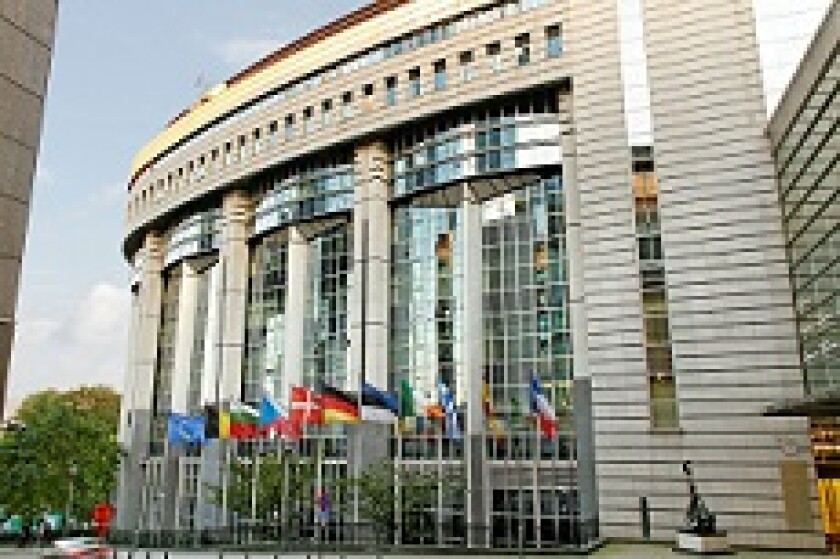The European Parliament’s Economic and Monetary Affairs (ECON) Committee has published a report on sustainable finance, calling for radical action, including a binding legal framework for investors’ due diligence.
The report will form the basis for the Parliament’s view on sustainable finance, which will come into play when bills on the issue to be drafted by the European Commission start grinding through the legislative sausage machine.
Rapid change
The European Commission has gone from nought to 60 on sustainable finance in just over a year. It was only at the end of 2016 that it appointed a high level expert group (HLEG) of 20 private sector experts to advise it.
The HLEG produced its recommendations at the end of January, and a mere five weeks later, the Commission published its Sustainable Finance Action Plan (SFAP), an ambitious raft of policies enthusiastically backed by vice-presidents Valdis Dombrovskis and Jyrki Katainen.
The SFAP incorporates most of the HLEG’s recommendations into 10 distinct workstreams, many of which will involve legislation, either primary or secondary.
One of the first coming down the pipe is a law to develop a taxonomy of climate change and environmentally and socially sustainable activities — due this quarter.
An odd place to start, perhaps — essentially, a legally enshrined dictionary of green terminology — but supporters see this as vital to helping investors and banks start to allocate capital where it is needed to green the economy.
Another early measure may be creating a new legal category of sustainability benchmarks for financial markets — such as the well known FTSE4Good and JP Morgan’s brand new ESG version of its EMBI indices of emerging market bonds.
Piecemeal measures
Rather than one huge ‘omnibus package’ which brings in all the sustainable finance measures together, as some politicians would like, it looks like the Commission is planning to legislate piecemeal.
This is partly because many of the areas can be tackled by secondary rulemaking.
For example, one of the Commission’s more daring policies — making investment providers take into account sustainability when they decide whether a certain investment is suitable for a particular customer — can be enforced by changing the implementation guidelines for MiFID II and the Insurance Distribution Directive.
On the right side
In this complex dance, the Parliament’s new report is so far just a position piece. But it gives the first concrete sign of how elected lawmakers will treat sustainable finance.
Pious intentions from Brussels civil servants are one thing — but how will green finance rules and policies fare when faced with the heat of public opinion?
So far, the signs are very encouraging. The consensus in the Parliament’s ECON committee is strongly in favour. And the list of sustainable finance measures called for by the MEPs is even broader and more profound than the Commission’s .
The report has won the endorsement of “a large majority” of the committee’s Greens, European People’s Party (Conservatives and Christian Democrats), Social Democrats and Left representatives. The Liberals (ALDE group) voted against it, as did right wing Eurosceptics.
If the ECON members’ view can carry their parties with them in the wider Parliament, this suggests the Commission’s sustainable finance laws are unlikely to meet serious opposition when they come to Parliament.
The report endorses essentially all the SFAP’s proposals — but also goes further.
Deep greening
Among the MEPs’ demands which go beyond what the SFAP envisages, are:
• Phasing out direct and indirect subsidies for fossil fuels.
• Binding stress tests for financial firms to assess their exposure to sudden crashes in the value of carbon-related assets, such as oil companies’ shares.
• Binding requirements on companies to disclose sustainability factors.
• Extending the rules on fiduciary duties of actors in the entire investment chain to including clients’ sustainability preferences, whether or not these have a possible financial impact.
• The European Investment Bank (EIB) should make its lending compatible with Paris climate targets and withdraw from CO2-intensive projects.
• A binding legal framework for investors’ due diligence on ESG factors.
Conservatives blocked tougher measures from being included in the report.
These measures would have ruled out nuclear power and airport infrastructure from being considered sustainable projects, imposed an EU-wide minimum price for CO2 and a CO2 border tax, and instructed banks to invest a gradually increasing share of their balance sheets in sustainable sectors.
But the measures on which the ECON committee has reached consensus are still powerful.
Taken together, they would really begin to bind the principles of sustainability to the brows of everyone in the financial system. And sustainability does not just mean green: it should be broadly defined as “ecological, social and governance-related”.
Given what we know about finance and human nature, it would be rash to forecast the beginning of a new age, in which markets are more effectively harnessed for social good. It’s tempting, nonetheless.

